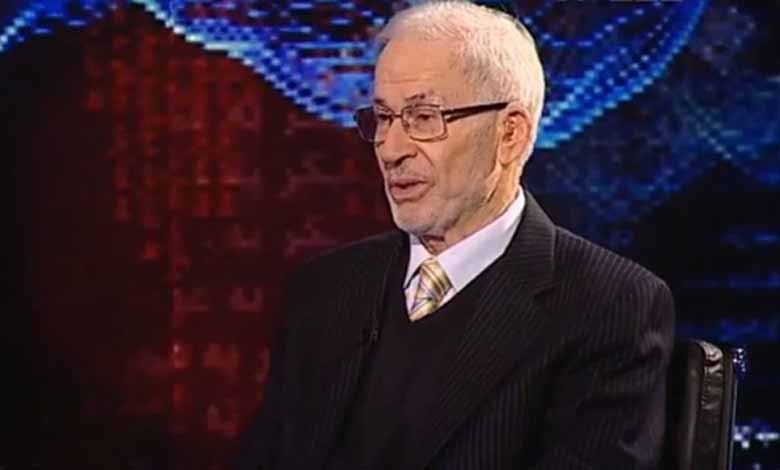Has exclusion and murder become the fate of Ibrahim Munir?

The bitter disputes between the Brotherhood’s ranks have escalated to the point of rivalry, with death threats directed at Ibrahim Munir, the acting leader of the terrorist Muslim Brotherhood, accusing him of failing to lead the group and being unhappy with his performance and support.
Death threats
Ibrahim Munir, acting leader of the Muslim Brotherhood terrorist group, received death threats from an internal element close to his rival, Brotherhood leader Mahmoud Hussein, forcing him to reinforce personal security at his home and workplace in London.
These threats show that the Muslim Brotherhood in Turkey rejects the existence of Ibrahim Munir in the organization, being dissatisfied with the support he provides, given that they want to increase their wealth.
Brotherhood members also believe that Munir was the cause of the fall of the Brotherhood in Tunisia, Morocco, and Mauritania. This is why the conflict is led by the other side, the Muslim Brotherhood’s Mahmoud Hussein in Turkey, who leads the Brotherhood in Turkey to bring down Munir, and the formation of leading figures of the Brotherhood, who will be based in Turkey, where he is preparing to declare himself acting leader.
These divisions foreshadow the group’s implosion as its leadership feuds, and its recent utter failure in the Arab region of its east and west.
Brotherhood divisions
The latest of these conflicts is Ibrahim Munir’s decision last Wednesday to dismiss senior leaders of the group who were previously referred for investigation, among others he did not name, for “breaking ranks and causing confusion”.
In the past, Munir decided to arrest six members of the Brotherhood’s Shura Council (the highest oversight body) and refer them to investigation, most notably Mahmoud Hussein, Medhat Al-Haddad, and Hammam Youssef, all of whom were outside Egypt. He said that the decisions taken by those leaders, without clarifying them, were “null and void for violating the list and leaving them without any status”, and that those who contributed to them “got themselves out of the group”.
According to the statement, 84% of the General Shura Council approved Munir’s dismissal, while 78% agreed to abolish a body he headed as an alternative to the Guidance Office, which has been out of service since the end of last year.
The Brotherhood Online website reported that the decisions were made during the Shura Council’s meeting this month, held with a correct meeting and a quorum. The website called for adherence to these resolutions, considering them “representative of the group”.
Munir did not comment on the statement posted on the group’s official website, but those close to him say: “The website is run by supporters of the arrested group, and the statement is neither true nor credible,” while another group of supporters of those arrested denies this.
The group’s ranks have been boiling since the Brotherhood’s acting supreme guide, Ibrahim Munir, officially announced the decision to dissolve a country’s administrative bureau for organizational affairs and the Shura Council in June, in addition to postponing the so-called “fake” internal elections, which were scheduled to be held within weeks to select members of the so-called General Shura Council, for six months.
Exacerbation of crises
Munir’s recent decisions angered several of the group’s historical leaders, who in recent days made contacts and arrangements with leaders inside and outside Egypt to persuade them to issue a unified statement on Munir’s dismissal as a pre-emptive step before the committee’s formal dissolution was announced.
While Munir asserted that some are trying to control the group, he blamed the Istanbul figures of Mahmoud Hussein, the group’s former secretary-general.
The crisis between the leaders of the organization escalated sharply in mid-September, with internal elections held. These leaders did not recognize the crisis, as they confirmed the existence of “irregularities” that nullified it.
The causes of the current conflict between the leaders of the Muslim Brotherhood are financial and media-related, as the countries that support them have stopped supporting them in several ways, foremost among them the media and limiting their activities, in addition to drastically reducing funding. This is what Turkey has publicly done in order to achieve reconciliation, break its international isolation, and narrow the Brotherhood’s crises.












